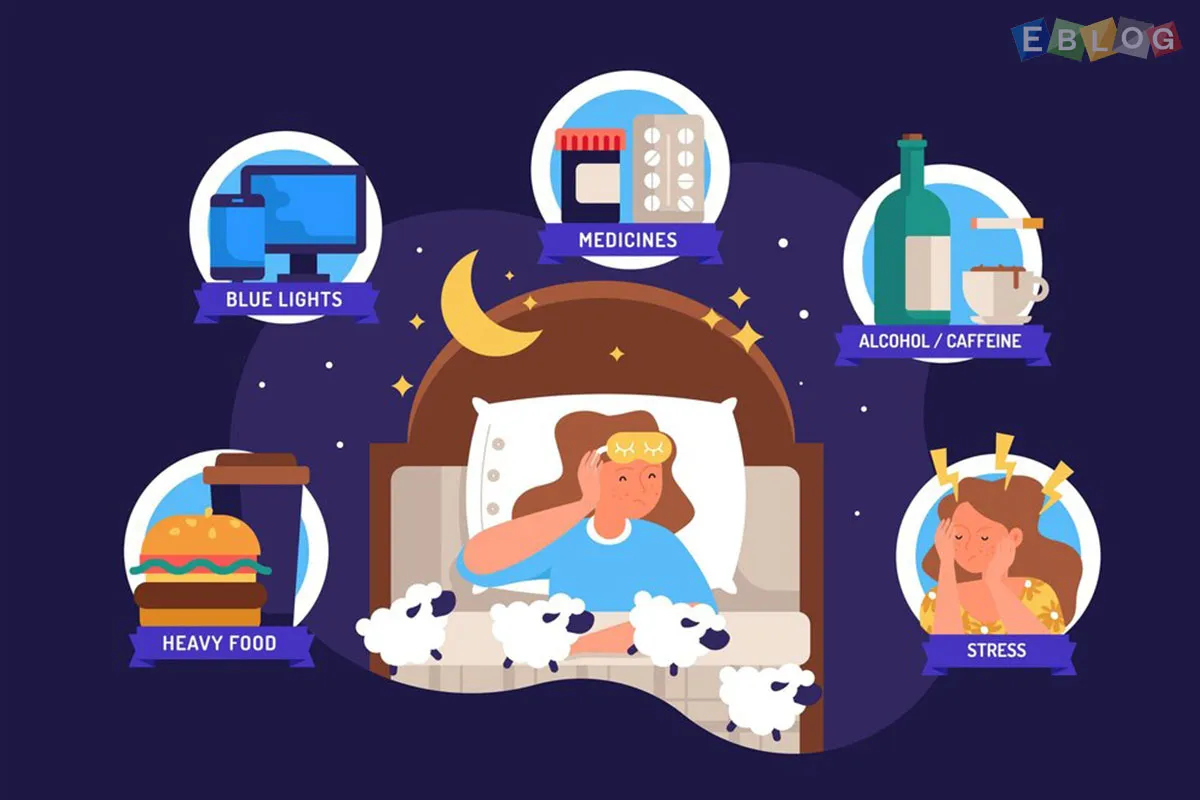
Quick Tips to Improve Your Sleep Tonight
- 11 Nov, 2024
- Health
- 532 Views
- 0 Comments
We all know the importance of a good night’s sleep—it's essential for your overall health, well-being, and productivity. But in today’s fast-paced world, getting the quality sleep you need can sometimes feel like an uphill battle. Whether you're struggling with falling asleep, staying asleep, or just not feeling rested when you wake up, there are simple strategies you can implement tonight to improve your sleep.
Here are some quick and effective tips to help you get better rest and wake up feeling refreshed.
1. Set a Consistent Bedtime Routine
Our bodies thrive on routine, and having a consistent sleep schedule can help regulate your internal clock. Go to bed and wake up at the same time every day, even on weekends. This helps your body establish a natural rhythm, making it easier to fall asleep and wake up feeling rested.
If you have trouble unwinding at night, try creating a calming bedtime ritual. Engage in relaxing activities such as reading a book, practicing gentle stretching, or listening to soothing music or a podcast. Avoid stimulating activities like watching intense TV shows or scrolling through your phone, as they can interfere with your ability to fall asleep.
2. Limit Screen Time Before Bed
In our tech-driven world, it’s easy to get sucked into your phone, tablet, or computer screen before bedtime. However, the blue light emitted by screens can interfere with the production of melatonin, the hormone that helps you fall asleep. This can make it harder for you to wind down and fall asleep naturally.
To improve your sleep tonight, try to avoid screens at least 30–60 minutes before bed. Instead, opt for activities that help you relax, such as journaling, meditating, or enjoying a warm cup of herbal tea. If you absolutely need to use a device, consider using "Night Shift" or "Blue Light Filter" modes to reduce blue light exposure.
3. Create a Sleep-Friendly Environment
Your bedroom environment plays a huge role in the quality of your sleep. A cool, dark, and quiet room is ideal for restful sleep. Consider making the following adjustments to your sleep space:
a. Dim the lights: Light signals to your body that it's time to be awake. As the evening progresses, dim the lights to help your body transition into sleep mode.
b. Keep the room cool: The ideal temperature for sleep is between 60-67°F (15-20°C). A cooler room promotes better sleep quality.
c. Reduce noise: If you’re sensitive to noise, try using earplugs or a white noise machine to block out disturbances. A fan or a calming sound app can also help mask disruptive noises.
Investing in comfortable bedding—like a supportive pillow and a cozy mattress—can also significantly improve your sleep quality.
4. Watch Your Diet and Drink Choices
What you eat and drink before bed can greatly affect your sleep. While it might be tempting to indulge in a late-night snack or a glass of wine, certain foods and beverages can disrupt your ability to fall asleep or stay asleep.
a. Avoid caffeine: Caffeine is a stimulant that can stay in your system for hours, keeping you alert when you want to wind down. Skip coffee, tea, chocolate, and energy drinks in the afternoon and evening.
b. Limit alcohol: While alcohol might make you feel sleepy initially, it actually interferes with the deeper stages of sleep, leading to poor-quality rest.
c. Watch your meals: Heavy, spicy, or acidic foods can cause discomfort and indigestion, which can disturb your sleep. Opt for a light, balanced dinner and avoid large meals within 2-3 hours of bedtime.
Instead of a sugary or caffeinated treat, try a small snack that promotes sleep, like a handful of almonds, a banana, or a warm glass of milk. These foods contain tryptophan, an amino acid that helps the body produce melatonin.
5. Practice Relaxation Techniques
If your mind is racing or you're feeling stressed, it can be difficult to fall asleep. Incorporating relaxation techniques into your evening routine can help calm your mind and prepare your body for restful sleep.
a. Deep breathing: Try deep breathing exercises, such as the 4-7-8 technique. Inhale through your nose for 4 seconds, hold your breath for 7 seconds, and exhale through your mouth for 8 seconds. Repeat for a few minutes to calm your nervous system.
Progressive muscle relaxation: Starting from your toes, tense and then relax each muscle group in your body. This helps release physical tension and signals to your brain that it’s time to rest.
b. Meditation or mindfulness: Apps like Calm, Headspace, or Insight Timer offer guided meditation and sleep stories designed to help you relax and ease into sleep.
Even a few minutes of these relaxation techniques can make a big difference in how quickly you fall asleep and how restful your sleep is.
6. Exercise During the Day
Regular physical activity is one of the best ways to improve sleep quality, but timing matters. Exercise during the day—especially in the morning or early afternoon—can help you feel more tired and ready for sleep at night.
Be mindful, though, of exercising too close to bedtime. Intense physical activity in the evening can increase your heart rate and adrenaline levels, making it harder to wind down. Try to finish vigorous exercise at least 3 hours before bed. If you enjoy evening workouts, opt for gentler activities like yoga or stretching, which can actually help relax your body and mind before sleep.
7. Get Exposure to Natural Light
Your body’s sleep-wake cycle is regulated by natural light, so it’s important to get exposure to sunlight during the day, especially in the morning. Sunlight helps reset your internal clock, making it easier to fall asleep at night.
In the morning, try to spend some time outside, even if it’s just a short walk or standing near a window. This will help boost your mood and alertness during the day, as well as promote better sleep at night.
On the flip side, try to reduce exposure to bright lights in the evening, especially from screens or overhead lighting. This signals to your brain that it’s time to wind down for sleep.
8. Use a Sleep Aid as a Last Resort
If you're still having trouble falling asleep despite making these changes, you might be tempted to reach for a sleep aid. While over-the-counter sleep medications are widely available, it’s best to reserve these for occasional use and not as a nightly habit. Many sleep aids can have side effects and don’t address the root cause of poor sleep.
Instead, consider natural sleep aids like melatonin supplements (if approved by your healthcare provider), herbal teas like chamomile or valerian root, or aromatherapy with essential oils such as lavender or cedarwood. These can be gentle, non-habit-forming options to help you relax before bed.
Conclusion
Improving your sleep doesn’t require drastic changes, but small adjustments can make a big difference in how well you rest. By following these simple tips—setting a consistent bedtime routine, limiting screen time, creating a sleep-friendly environment, and practicing relaxation techniques—you can improve your sleep quality and wake up feeling more energized and refreshed.
So tonight, take a few moments to wind down and implement these strategies, and you’ll be on your way to better sleep—starting right now! Sweet dreams!















Leave a Reply